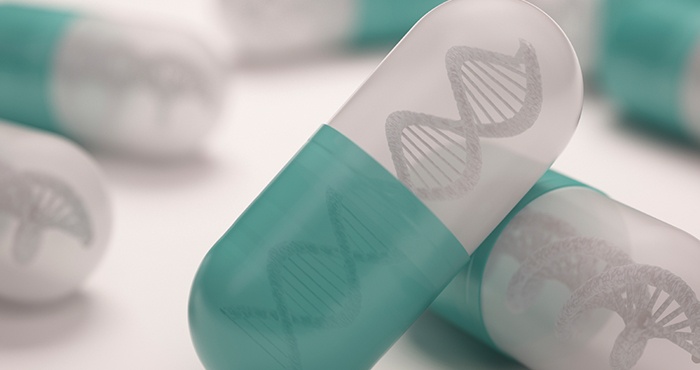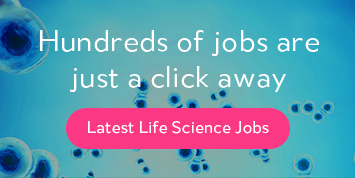

One of the most innovative and fast moving fields in healthcare is genomics, which encompasses the sequencing and analysis of the human genome (our complete set of DNA). Genomics is enabling pharmaceutical companies to take a more personalised approach to drug development and will lead to safer and more effective drugs. Here's how genome sequencing is aiding drug research and development.
Although we all share around 99.5% of our DNA, there are still millions of differences between the genomes of two people. These differences can affect our susceptibility to certain diseases and the way that we respond to medicines.
Genome sequencing/testing can identify disease risk, ancestry, traits and response to medicines and is aiding in the development of new targeted therapies, sometimes called precision medicines. Through understanding of genomic information, pharmaceutical companies are now able to produce targeted therapies that affect pathogens or cancer cells but which do not damage healthy body cells.
Before targeted therapies are administered, they usually require genetic screening to ensure that patients are not at risk, with use of biomarkers to identify people who have these unusual results. Abacavir/Ziagen is one such drug. Hypersensitivity to the HIV/AIDS therapy from ViiV Healthcare (a joint venture company of GSK, Pfizer and Shionogi) has been shown to be associated with a specific allele, so even though it is effective in over 90% of patients genetic testing must be done before it can be prescribed. In cases in which the treatment would not be suitable, alternative therapies are sought.
Personalised medicine
The same technique could be applied to all medicines in the future to create healthcare systems that offer truly personalised medicine to everybody. Knowing how well a patient is likely to respond to a particular drug before it is even administered can assist physicians in choosing the right drug and the right dose for each individual. Many existing drugs have a patient response rate of only 40%, but genomics is enabling drug researchers to understand why some patients with seemingly identical conditions respond better than others do to the same treatment.
Personalised medicine is an approach to healthcare by which products are tailored to the individual patient. Although doctors might adjust a patient's medication later if they do not respond well or if they experience side-effects, understanding of the correlation between each drug and certain biomarkers in our DNA will enable them to prescribe the best course of treatment first time.
In most cases, patients with the same condition begin a course of treatment in the same way. With existing methods, an individual can experience serious side-effects to a drug that does not affect thousands of others; 197,000 deaths per year in the EU are estimated to be caused by adverse drug reactions. Pharmacogenomics — the study of the role of genetics in drug response — is unlocking the reasons behind this.
Genomics has also shown that many diseases that are classified as the same are actually made up from several different subsets. Diabetes, for example, has until recently been treated in more or less the same way in most patients. Genomics has uncovered different types of diabetes that are better controlled with different medications.
Expanding the genome pool
These advances are being made possible by the increasing number of patients who are having their genome sequenced. Technological improvements have drastically reduced the cost of genome sequencing over the past 2 decades, which has led to an increasing number of publicly and privately funded genome projects worldwide and direct-to-customer DNA tests, such as those offered by 23andMe. Much of these data are now available to the pharmaceutical industry for research and development of targeted therapies.
In the UK, GlaxoSmithKline, Roche, AstraZeneca, Biogen, AbbVie and others are reportedly working with Genomics England on their project to sequence 100,000 genomes from 70,000 NHS patients with rare diseases and cancer, and both Roche and Pfizer have agreed deals to with 23andMe to access their community of patients with Parkinson’s and Crohn’s respectively, to look for genetic clues to their causes.
Analysis of the genome can also identify individuals that carry a high risk of hereditary illnesses, such as diabetes, early-onset dementia, cancer and many rare diseases, and all patients could in the future have their genome sequenced. This information can be used to identify and treat patients at risk earlier, and even take preventive steps that stop the condition from ever surfacing.
What targeted therapies are being produced?
In 2014, eight of the 41 new drugs approved by the FDA were targeted therapies. These include cancer drugs Lynparza (AstraZeneca), Blincyto (Amgen) and Zykadia (Novartis); hepatitis C drugs Harvoni (Gilead) and Viekira Pak (Abbvie); as well as other therapies for rare diseases.
There are other added benefits to the personalised medicines model for pharmaceutical companies too. Targeted therapies for specific groups of patients can often be brought to market faster than other drugs. In fact, 90% of targeted therapies approved in recent years have used one or more of FDA’s expedited programmes. There are also opportunities for pharmaceutical companies to develop new drugs that offer alternatives to market leading therapies for patients who do not respond well to them or experience adverse reactions.

.png)





.png)

.png)
.png)

.png)
.png)













